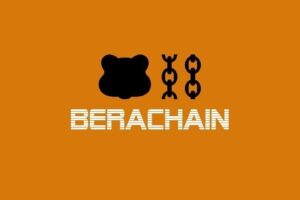With big tech companies like Google and Meta pumping potentially unwanted AI features into their messaging platforms, there is a growing call for decentralized and encrypted alternatives that don’t rely on the centralized heavyweights.
One company that aims to provide this service is Here Not There Labs, creator of the Towns social app and the newly launched River Protocol. River aims to offer an alternative to chat platforms like Slack and Discord, powered by blockchain tech and both customizable and private for creators.
“You see a lot of social media products that are decentralized, but you don’t see a lot of social media protocols,” Here Not There Labs co-founder and CEO Ben Rubin told Decrypt. “I do not know of a social media [app] that is owned and operated by the participants of its network that have a means to create trust between one another in a way that is permissionless.”
Created in 2023, River Protocol is designed to allow developers to build decentralized, real-time messaging applications using an Ethereum Virtual Machine (EVM) compatible layer-2 blockchain, off-chain nodes, and smart contracts on Ethereum scaling network Base.
A screenshot from Towns, which is built on River Protocol. Image: Here Not There Labs
According to the River Protocol website, the project is governed by the River Association, a decentralized autonomous organization or DAO, that allows RVR token holders to participate in the protocol’s future.
River Protocol joins a growing number of decentralized applications offering secure communications and social media including Farcaster, BlueSky, Nostr, and Blockscan Chat. But while many social media protocols are aiming to take on Twitter, River Protocol is more focused on teams, companies, and projects who need their own dedicated server.
“Each group is represented as a space, and each space is its own smart contract that is being deployed on-chain,” Rubin said. “What the smart contract does is allow the group to issue membership into the space, and also program the entitlement of who can read and write, and under what conditions.”
According to Rubin, this type of setup works best for large groups with specific roles assigned to members like moderators, or who need to set restricted access to channels in the group.
River stores content off-chain and uses on-chain roll-ups. A bespoke appchain handles messaging to maintain speeds to provide a similar experience to Telegram or WhatsApp. This separation, Rubin added, ensures robust security for permissions while optimizing messaging to be fast and user-friendly—yet maintains user control and decentralization.
“While our main deployment is on-chain, you can read on [Ethereum] mainnet, Polygon, or across any other chains to compose rules together,” Here Not There Labs co-founder and CTO Brian Meeks added. “All of that creates a trust route for the messaging, which is happening in the River protocol. But you can cryptographically verify that what is in the River protocol is what is allowed based on what’s on-chain.”
Other potential user cases for River Protocol besides messaging apps, Meeks added, include connecting players of decentralized video games.
“Everything benefits from communication,” he said. “You can compose their protocol together into your game, into your app, or into whatever other decentralized experiences you have, and bring in a real-time provable, verifiable, end-to-end encrypted communication experience.”
Additional reporting by Sander Lutz.
Edited by Andrew Hayward
Read the full article here









